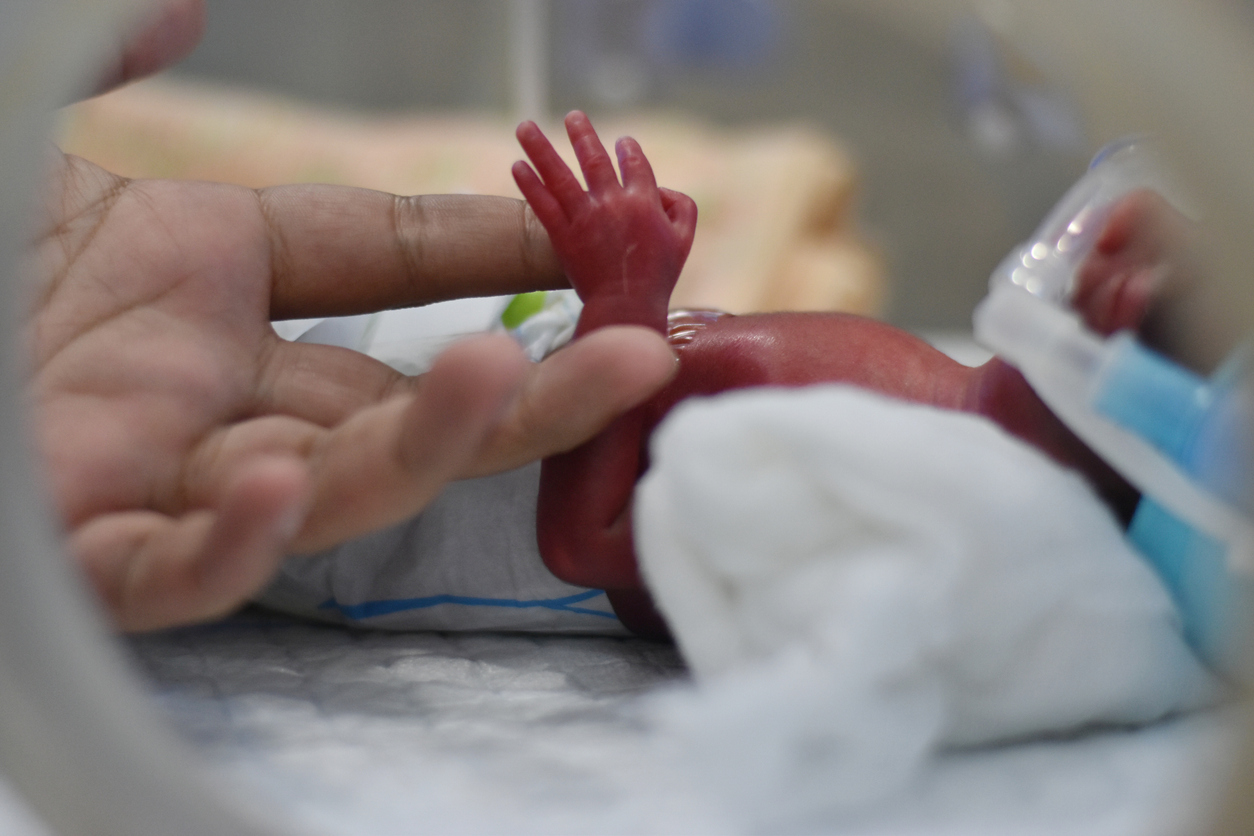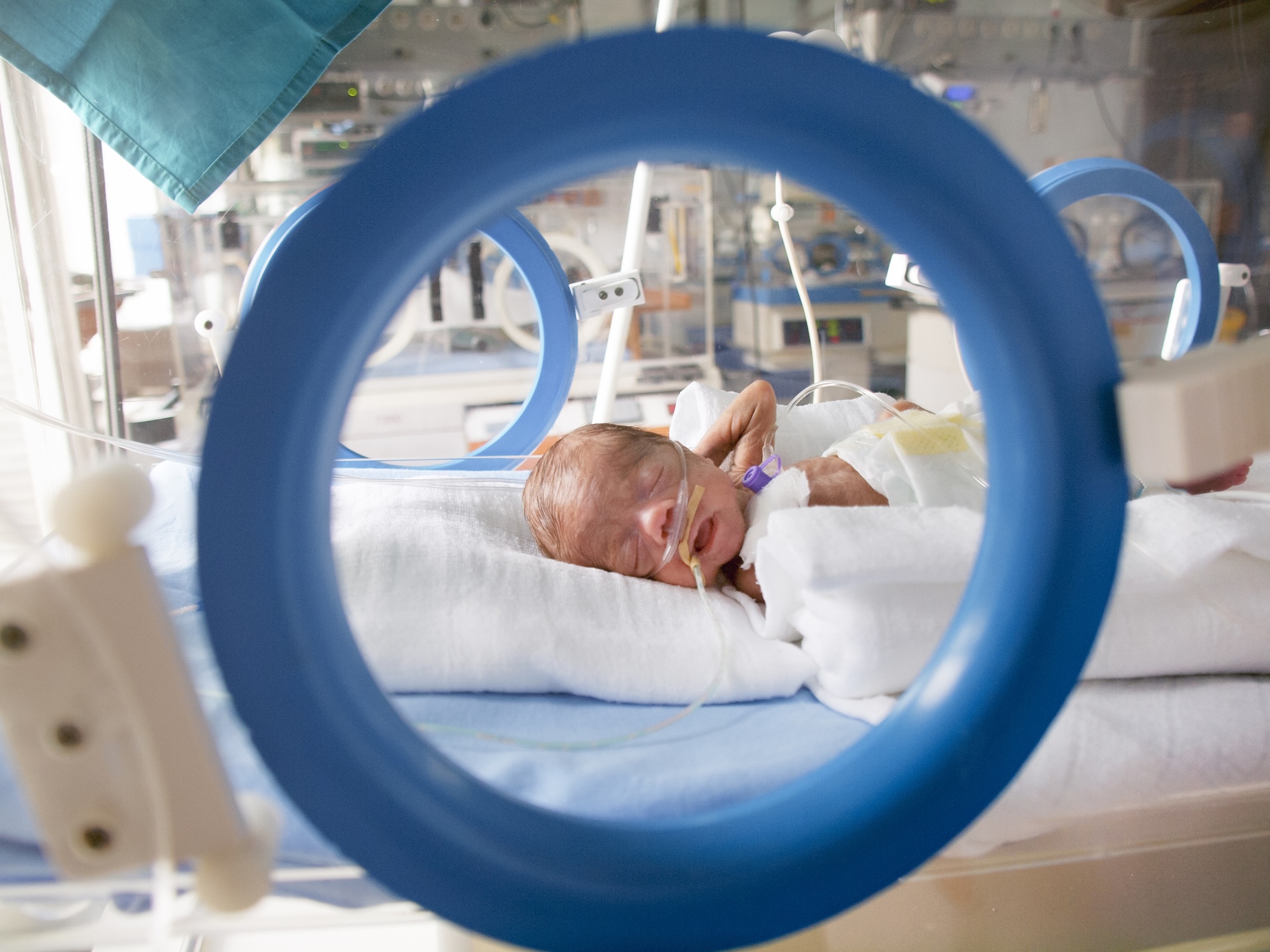Improving oral care for neonates in NICU

In the neonatal intensive care unit the tiniest patients face some of the most complex health challenges. Many critically ill newborns rely on ventilators, feeding tubes, and other life-sustaining devices inserted through their nose or mouth. These interventions are essential, but they also increase the risk of oral complications, which can compromise comfort, increase infection risk, and prolong hospital stays.
Risks of poor oral care in the NICU
In the neonatal intensive care unit (NICU), some newborns with acute and severe diseases rely on ventilators, so an endotracheal tube needs to be placed in the oral cavity; other newborns are treated with a nasal prong. Most infants are also fitted with oral/nasogastric tubes to sustain their life and provide them with nutrition. These invasive catheters can cause excessive oral secretions. If oral care is not performed correctly, health issues such as dry mouth and lip mucosa, excessive saliva and mucus, tongue coating, redness, pressure sores, vitiligo and thrush may occur.

Hospitalised newborns are especially vulnerable to issues such as thrush, tongue coating, dry mouth, and pressure sores, all of which can have serious clinical and developmental consequences if not addressed. Complications stem from disrupted oral microbiomes, mechanical trauma, and prolonged exposure to pathogenic bacteria. Pathogenic bacteria can migrate to the lungs through microaspiration, which raises the risk of ventilator-associated pneumonia, a life-threatening conditioning in critically ill newborn babies.
Change agents for neonatal oral hygiene
Yong-Chuan Chen is a head nurse at NICU in Taichung Veterans General Hospital, Taiwan. The hospital provides 18 beds for critical neonatal care (including premature infants) in the NICU, which caters for 12 to 15 critical newborn babies every day. With the incidence of neonatal oral problems in the NICU as high as 45%, Chen understood the need to ensure that properly performed neonatal oral care was embedded into daily practice.
Consequently, an oral care team was organised to undertake a quality improvement project, guided by the JBI Manual for Evidence Implementation and facilitated by JBI PACES (Practical Application of Clinical Evidence System). The team members included nurses, the supervisor of infection control, a neonatologist and a dentist.
The quality improvement project conducted by the team followed the seven phases of evidence implementation. One of the earliest phases of the project was to conduct a clinical audit using evidence-based audit criteria to assess current practice against best practice.
"JBI evidence suggests that if nurses can properly perform neonatal oral care, oral problems can be averted. This means that the incidence of intraoral infections and other complications can be decreased. It also means that the comfort of neonatal patients can be improved with the enhanced quality of hospital care. The length of stay in the intensive care unit can also be reduced, together with hospital costs."
A baseline audit showed that only 20% of nurses performed neonatal oral care correctly. The audit also revealed that nursing staff did not perform a complete oral assessment correctly, and that their oral care methods were inconsistent.
The team used the Getting Research into Practice (GRiP) method to identify barriers and solutions for getting research into practice. Their focus centred on educating nurses staff according to best practice and embedding best practice as routine in daily practice.
Educating and collaborating for practice change
In July 2020, the dental care team at the hospital provided in-service education in the NICU. Nurses were instructed on how to perform an oral cavity assessment and care on neonates. Training sessions were recorded and made readily available to staff for their reference and review. In addition, standards of procedure and direct observation of procedural skills for nursing technique were developed according to JBI clinical guidelines, and neonatologists were invited to review and modify them.

NICU staff were invited to collaborate with the quality improvement project team to check the evidence base, provide feedback on the training sessions, and establish the assessment and care standards.
"Educating nurses to help them realise the importance of neonatal oral care but we also empowered them by giving them the knowledge to work and collaborate with us to change practice according to the evidence."
This level of engagement with NICU staff meant that the project had the buy-in from the frontline staff who would need to change their daily routines and contributed to the success and sustainability of the quality improvement project.
From evidence to impact
A follow-up audit found that after three months of implementing and promoting the quality improvement measures, approximately 90% of the nurses in the NICU could correctly assess the oral condition of a newborn.
The evidence-based project really did make a difference, even in a short amount of time. The rate at which the nurses performed newborn oral care correctly increased from 20% to more than 90%. The incidence of oral problems decreased from 45.16% to 12.32%."
The improvements in neonatal oral care have been sustained by regular audits to identify if nursing staff are continuing to perform neonatal oral care correctly. Since the implementation of the project the team, in collaboration with other NICU staff members, has developed exclusive neonatal ventilator-associated pneumonia care bundles, so that the future clinical inspection processes of neonatal oral care are more efficient to help improve quality of care for newborn babies.
Conclusion
This quality improvement project in the NICU at Taichung Veterans General Hospital illustrates how evidence-based practice can lead to transformational change in neonatal care. The collaborative, education-focused approach empowered nursing staff, improved clinical outcomes, and demonstrated the value of sustaining evidence-based practices through ongoing audit and innovation. This initiative not only enhanced neonatal well-being but also strengthened the culture of quality care within the hospital, setting an example for similar units.
Key Takeaways
- Education, collaboration, and procedural clarity helped embed best practices into daily routines and ensured staff ownership of the change.
- Audit and feedback drive accountability and improvement, and create a feedback loop that reinforces adherence to best practice.
- Evidence implementation is a team effort., Involving nurses, infection control staff, neonatologists, and dentists enabled holistic, coordinated care and improved outcomes for the most vulnerable patients.
References
American Association of Critical-Care Nurses. (2023). Oral care in critically ill infants and the potential effect on infant outcomes. Critical Care Nurse, 43(4), 39–45.
Scannapieco, F. A., & Shay, K. (2014). Oral health disparities in older adults: Oral bacteria, inflammation, and aspiration pneumonia. Journal of Periodontology, 85(S12), S132–S138.
Chang Gung Memorial Hospital. (2023). Effect of the oral care program on oral health and oral microbiota in mechanically ventilated patients [Study protocol]. ClinicalTrials.gov.
Additional resources
JBI Manual for Evidence Implementation (for the JBI Evidence Implementation Framework and GRiP)
Authors
Yong-Chuan Chen1, Chia-Hui Chang1, Pi-Hua Chang1, Mei-Yu Chang1
1 Taichung Veterans General Hospital, Taichung, Taiwan
Disclaimer
Republished with permission from World Evidence-based Healthcare Day https://worldebhcday.org/stories/story?ebhc_impact_story_id=38